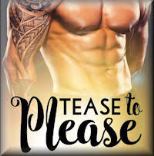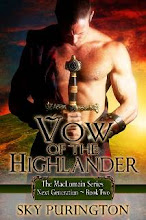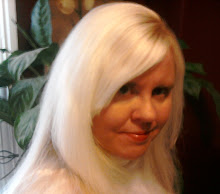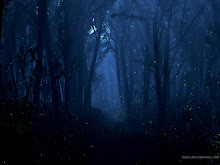Happy
Winter Solstice and 'Nollaig Shona Duit! You’ve arrived just in time to enjoy
my contribution to the Casting Light Upon the Darkness Blog Hop. Much thanks to
wonderfully talented author, Helen Hollick for putting this together. Brilliant! Visitors, please be sure to visit the list of participating authors after this post. Tons of giveaways!
 Of
course, I’ll be hosting a festive contest. The fabulous prize? None
other than, The Celtic Woman Home For Christmas Special Deluxe Package CD-DVD. How
to enter to win? Super easy. Leave a comment listing your favorite Celt
influenced holiday tradition as mentioned in this post OR add a Celtic derived
tradition that you know of. It’s all about having fun and learning new things
folks!
Of
course, I’ll be hosting a festive contest. The fabulous prize? None
other than, The Celtic Woman Home For Christmas Special Deluxe Package CD-DVD. How
to enter to win? Super easy. Leave a comment listing your favorite Celt
influenced holiday tradition as mentioned in this post OR add a Celtic derived
tradition that you know of. It’s all about having fun and learning new things
folks!
As
always, my fascination with the Celts is at the forefront. So what better topic
to cover than their influence on current American holiday traditions? The
tidbits I’ve pulled up both surprised and thrilled. You might be amazed by how
much these ancient people contributed to modern day Christmas in the States.
 But
before I begin allow me to first share a bit about the Celtic people. It
requires a delicate balance penning of such an old and revered society as
actual records are always disputable. As you might suspect, there’s a wealth of
information out there that argue the origins of the Celtic tribes. Some say the
original Celts were out of Greece, others say Austria and Switzerland. I claim
no degree in history but intend this article to focus on the Celts for which I
am most familiar, the people who were once native to Ireland, Scotland and
Wales, perhaps even England. Hence, as I continue it will be with reference to some
of these countries.
But
before I begin allow me to first share a bit about the Celtic people. It
requires a delicate balance penning of such an old and revered society as
actual records are always disputable. As you might suspect, there’s a wealth of
information out there that argue the origins of the Celtic tribes. Some say the
original Celts were out of Greece, others say Austria and Switzerland. I claim
no degree in history but intend this article to focus on the Celts for which I
am most familiar, the people who were once native to Ireland, Scotland and
Wales, perhaps even England. Hence, as I continue it will be with reference to some
of these countries. Before
the coming of Christianity the Celtic people didn’t celebrate Christmas but the
Winter Solstice. Fascinatingly enough, they felt that the sun stood still
between Christmas Eve and January 6’th. This particular date is carried forward
and can be supported by Ireland’s modern day tradition of Feast Of Epiphany
which is on the 6th of January, also celebrated as Women's Christmas (Nollaig
na mBan). At this time, the men in the family are supposed to carry on
household chores such as cooking and cleaning. Women have a chance to rest,
after working hard over the Christmas period. All I could think of after
discovering these dates were that they totaled twelve days between. Do we not
now have the Twelve Days of Christmas
in western society?
Before
the coming of Christianity the Celtic people didn’t celebrate Christmas but the
Winter Solstice. Fascinatingly enough, they felt that the sun stood still
between Christmas Eve and January 6’th. This particular date is carried forward
and can be supported by Ireland’s modern day tradition of Feast Of Epiphany
which is on the 6th of January, also celebrated as Women's Christmas (Nollaig
na mBan). At this time, the men in the family are supposed to carry on
household chores such as cooking and cleaning. Women have a chance to rest,
after working hard over the Christmas period. All I could think of after
discovering these dates were that they totaled twelve days between. Do we not
now have the Twelve Days of Christmas
in western society? 
So
time passed and though the Celts faded away, their ancestors lived on and eventually many immigrated to America. It is here in my homeland that I reflect
upon what such a revered and truly special people handed down through time. Yes,
many of the following could be disputed by Christian scholars but…aren’t they interesting
to say the least?
Did
you know that long ago, to celebrate the Winter Solstice, gifts were exchanged between
chieftains and clans as a means to renew ties and friendships? Centuries later,
we exchange presents from beneath the Christmas tree.
 What
of the infamous yule log on the fire? Well, the Scots believe a raging fire keeps
the elves from coming down the chimney. In fact, to this day they light a
bonfire on Christmas Day and dance to lively bagpipes while munching on Oatmeal
cakes. That same fire was lit by the pre-Christians on Winter Solstice to
worship their goddess and remains a tradition on Christmas day for many Irish
families.
What
of the infamous yule log on the fire? Well, the Scots believe a raging fire keeps
the elves from coming down the chimney. In fact, to this day they light a
bonfire on Christmas Day and dance to lively bagpipes while munching on Oatmeal
cakes. That same fire was lit by the pre-Christians on Winter Solstice to
worship their goddess and remains a tradition on Christmas day for many Irish
families.
What
of hanging a wreath on your front door? In pre-Christian times it was a means
to ward off evil spirits. Then there is the decorating of the Christmas tree. Though
the concept of a Christmas tree first came out of Germany the roots of
decorating the pine can be traced back further. Originally a pagan Irish
celebration, decorations celebrated the three deities, the sun, moon and star
and some decorations represented the souls of those who had died.
 This
one made me smile softly as I just recently put the lights in my windows. How
modernized we’ve really become. Anyways, it’s nice to know the reason behind
the Christmas tradition. Leaving a candle in the window of the house is to
guide Mary and Joseph on their way to Bethlehem to give birth. This, so it
seems, was inspired by an old Celtic ritual of lighting a way for the spirits
to pass peacefully.
This
one made me smile softly as I just recently put the lights in my windows. How
modernized we’ve really become. Anyways, it’s nice to know the reason behind
the Christmas tradition. Leaving a candle in the window of the house is to
guide Mary and Joseph on their way to Bethlehem to give birth. This, so it
seems, was inspired by an old Celtic ritual of lighting a way for the spirits
to pass peacefully.
And
what of the infamous holiday minced pie? As it turns out, these tasty staples
were baked in medieval times in oblong casings to represent Jesus' crib, and it
was important to add three spices (cinnamon, cloves and nutmeg) for the three
gifts given to the Christ child by the Magi. The pies were not very large, and
it was thought lucky to eat one mince pie on each of the twelve days of
Christmas (ending with Epiphany, the 6th of January).
 Last,
and certainly not least, is my absolute favorite. The mistletoe! This Druid/Celt
tradition was a symbol of male fertility. *grins* It was hung in the house and
the man had the right to kiss any girl that stood under it. This tradition,
thankfully, continues to make us all very happy during the holidays.
Last,
and certainly not least, is my absolute favorite. The mistletoe! This Druid/Celt
tradition was a symbol of male fertility. *grins* It was hung in the house and
the man had the right to kiss any girl that stood under it. This tradition,
thankfully, continues to make us all very happy during the holidays.
I’d
like to thank you all for spending a little time with me this holiday season.
May the New Year find you and yours healthy and happy. Please don’t forget to
leave a comment for a chance to win The Celtic Woman Home For Christmas Special
Deluxe Package CD-DVD. Contest ends Christmas Eve at 9 PM EST. Winner to be
announced shortly after Christmas day. Open to International shipping.
Fondest
Regards Always,
Sky
Visit these other interesting authors!
8.
Petrea Burchard : Darkness - how did people of the past cope
with the dark? Plus a Giveaway Prize!
9.
Richard
Denning : The Darkest Years of the Dark Ages: what do we really
know? Plus a Giveaway Prize!


























































































11 comments:
I don't want a prize because I'm one of the hoppers! But thanks, this is a fun post.
Hey, whatever happened to Nollaig na mBan (Women's Christmas)? That's a new one on me and sounds like a tradition worth resurrecting...
Another hopper here, Sky, so no prize for me either. But enjoyed the post and makes the point very persuasively that the Christian Faith simply "stole" the entire Solstice and Saturnalia twelve day festivals and customs - and didn't even do that until the Fourth Century - as a means of enticing "pagans" away from their own more exciting practices and, at the same time, artificially inventing a "birth date" celebration for Jesus, since the Gospels were mute on this subject. It's a wonderful time of year, though, regardless of our respective beliefs. Happy Solstice!
Like Wendy, I'd never heard of the Women's Christmas before - do you think the men have been purposely keeping it from us? I'd definitely like to take up that tradition in my household! (I'm also a hopper, btw!)
This was absolutely wonderful. I enjoyed what you captured of the Christmas Holiday. The celts (pronounced with a K sound cuz there isn't anything soft about a Celt but his heart. They were a creative and wonderful society. And by the way "barbarian' (or so Celts were called by Romans) stood for 'Foreigner.) And they too loved giving gifts. Isn't it wonderful
Wonderful post. I love the tradition of leaving a light in the window to guide Mary and Joseph. I enjoyed learning about the Celtic traditions that still live on today.
Nothing new under the sun, apparently. Enjoyed your post - a lot (I'm also one of the hoppers)
Hello from yet another hopper - and a Celt, a Welsh one. That's a nice collection of traditions. A happy Christmas season to you also and enjoy the mince pies.
Nothing new under the sun, apparently. Enjoyed your post - a lot (I'm also one of the hoppers)
I'm a hopper, too, so no prize for me. I've never heard that the Celts thought the sun stood still between Christmas Eve and Jan 6. Very interesting! I wonder if the Irish and the Germans have ever gotten into a fight over the origins of the Christmas tree, since both seem to claim it (although the Germans focus more on the tree itself than decorating it). Great post!
Interestingly enough, a lot of these Celtic traditions are a lot like Wiccan ones that celebrate Yule. And during this time they honor the goddess, which is like the "Women's Christmas" ... I especially like the idea of men doing all the work! Second day of Christmas and I'm already exhausted!! :) Great post!
Post a Comment